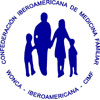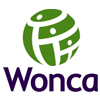Diagnostic demographic and situation of sanitation in rural areas of Uberaba
Resumo
Objetivos: Describe the diagnosis of family health teams in rural areas in Uberaba, Minas Gerais, second basic sanitation and demographic profile to equip medical students about acting and adherence to guidelines in the Family Health and Surveillance in health.
Metodologia ou descrição da experiência: We used descriptive statistics to analyze data from the Information System for Primary Care (SIAB) related to rural area of Uberaba / MG, in the year 2012. Was related data SIAB with the policies of rural allied health as a resource on the approach to the notions of family medicine to these populations. The focus was the instrumentation of medical students at the Federal University of Triângulo Mineiro in comprehensive care to rural populations. The diagnostic area, proposed by university extension through visits to family health teams allowed to understand the demographic profile of the user of the health service in rural areas, as well as the health dimension that surrounds it.
Resultados: Analyzing the data, the students perceived greater attachment of men in rural areas amounting 52% of registered teams, lacking in effective health policy tracking population. The school shows up as an area of intersectionality, because 92% of children between 7 and 14 years attending. It is need to encourage individual water treatment, since only 24.54% have public provision, in addition to targeting teams of water treatment at home because 36,21% performs no treatment. Garbage collection (46.34%) and sewerage (23%) of managers draw attention to the need to clarify and motivate forms of treatment individual, aiming the wellness of this population.
Conclusões ou hipóteses: Discuss the specifics of the living conditions of the rural community by academics in training implies a better orientation in terms of medical education as well as in understanding the role of family medicine and the multidisciplinary team working in areas with restricted access to urban health facilities.
Palavras-chave
Texto completo:
PDF (English)Apontamentos
- Não há apontamentos.
Este periódico é de responsabilidade das associações:
Apoio institucional:







